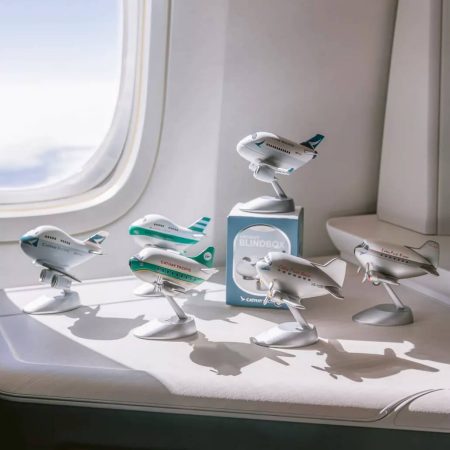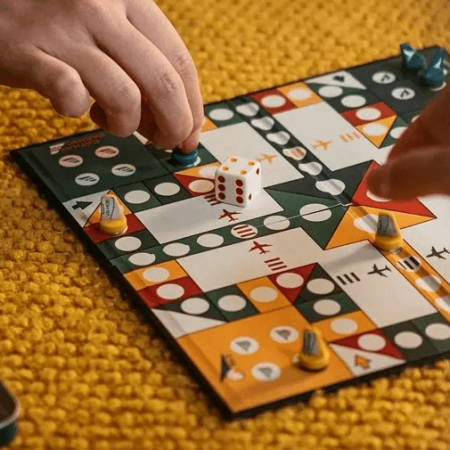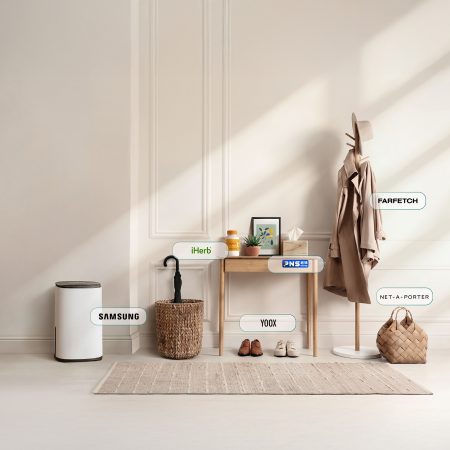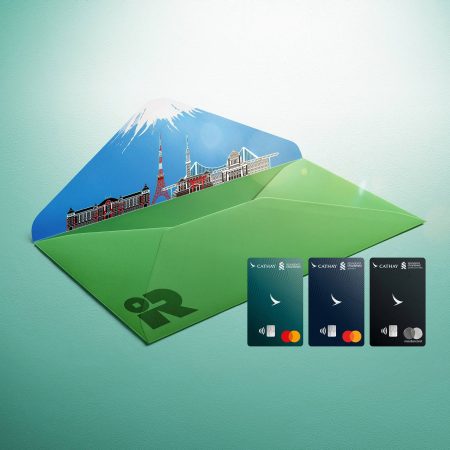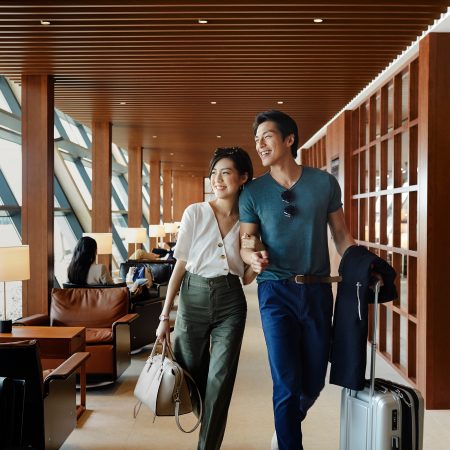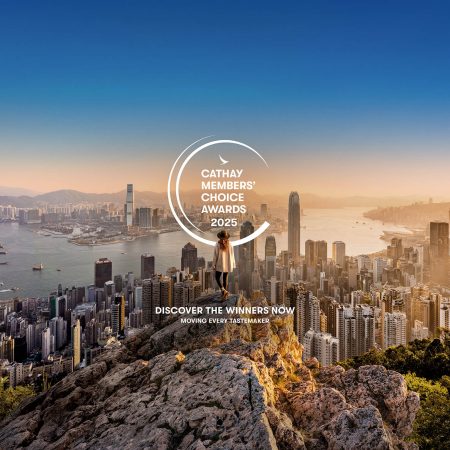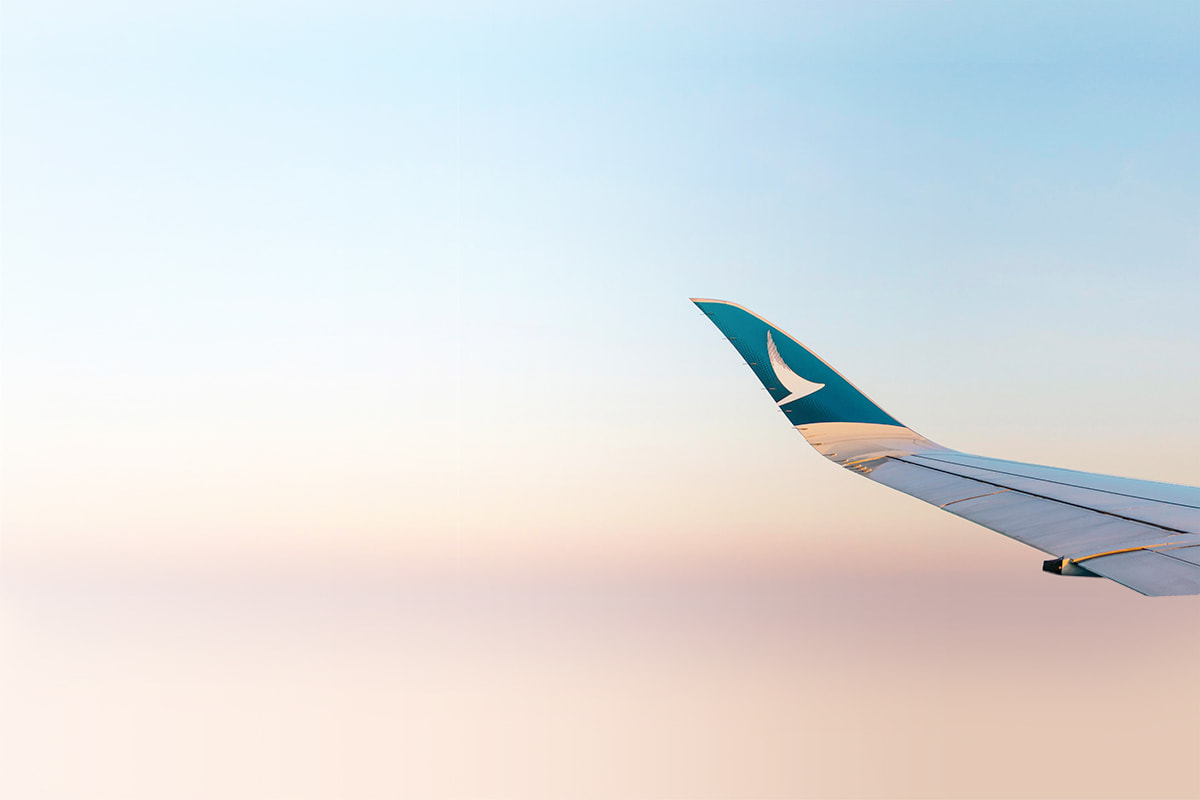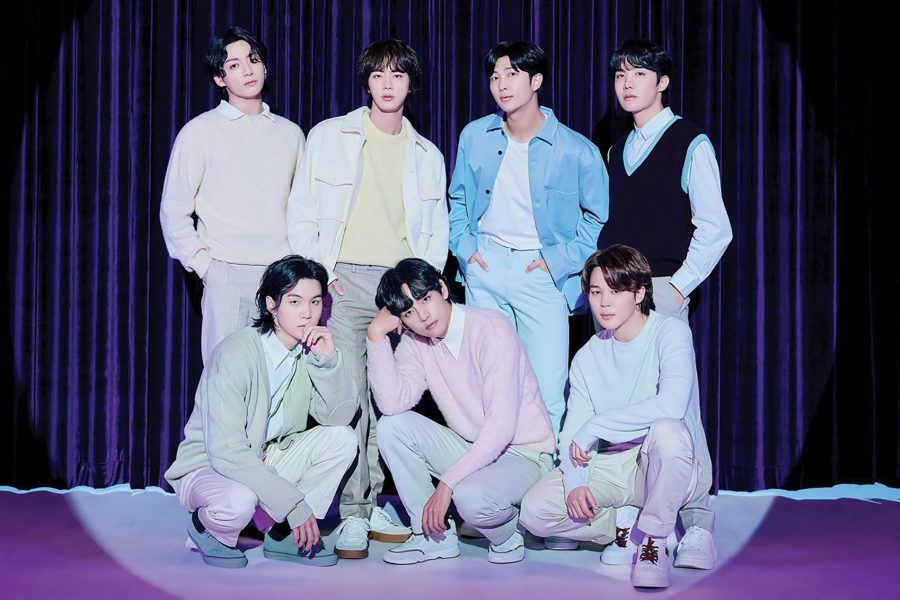Outside Hybe Insight’s K-pop exhibition in Seoul, women of all ages – American, Filipinas, Hongkongers and more – mill around the exit. Each holds up small pictures of their favourite musicians, ready to trade.
Strangers, united by their love of South Korean music, strike up conversations with one another, share recommendations on the best tteokbokki restaurants in Seoul, or cheer after a successful trade. It’s clear everyone is welcome in this stylish pocket of Gangnam.
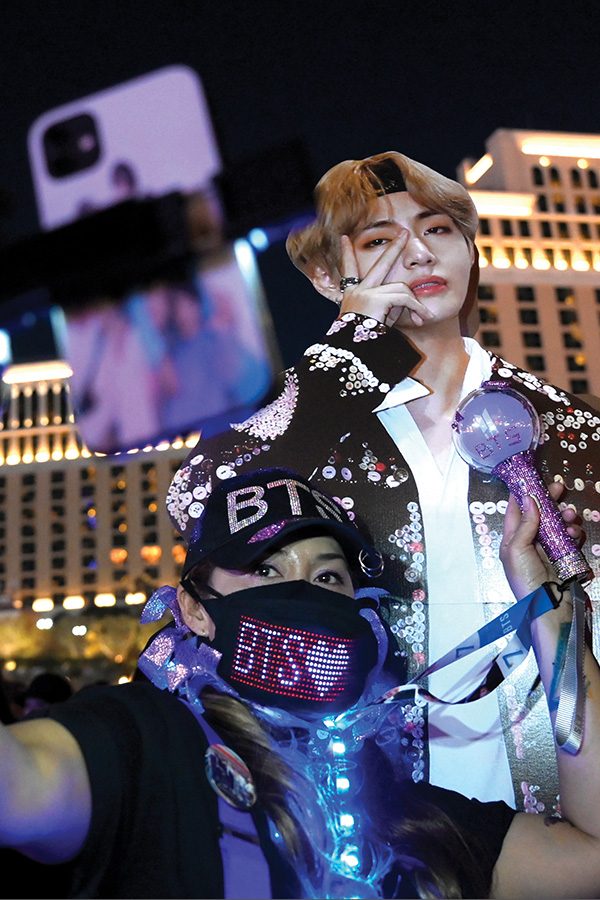
Credit: Getty Images
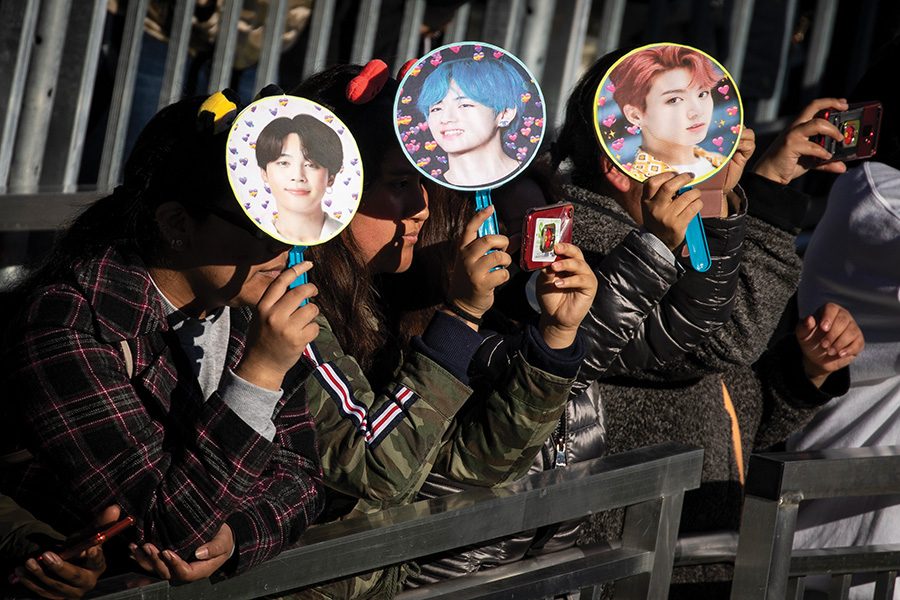
Credit: Getty Images
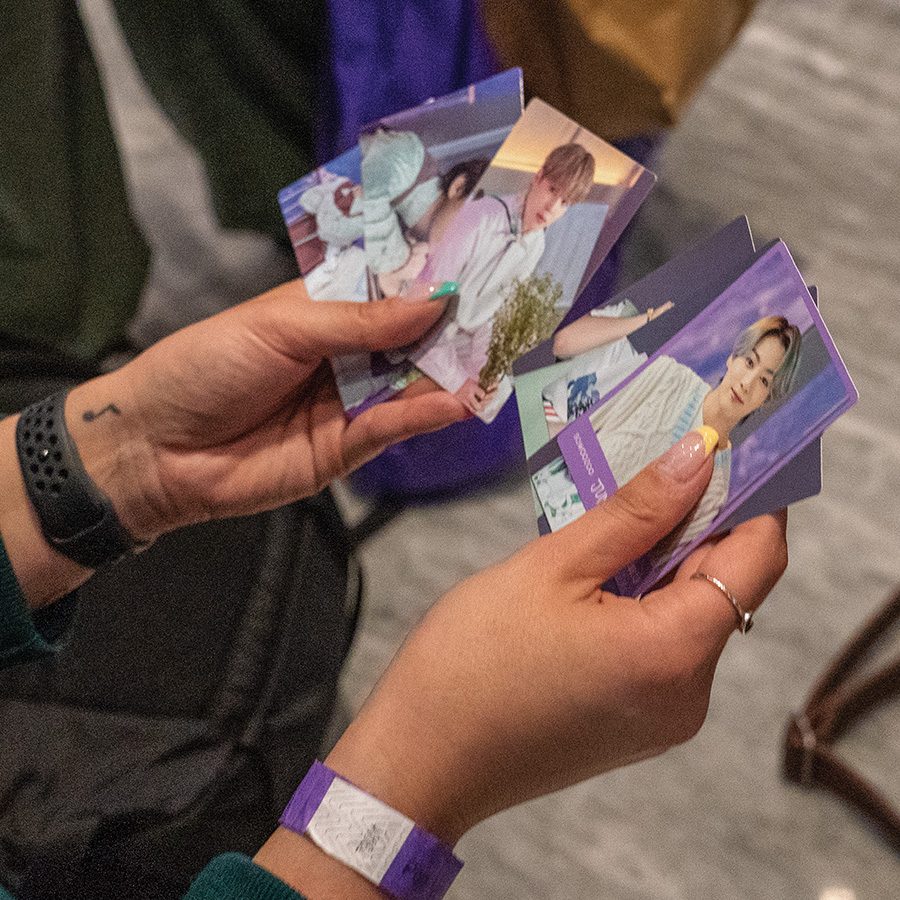
Credit: Getty Images
Around the corner, I run into Ica, a Filipina K-pop fan who’s in town for BTS member Suga’s D-Day concert this weekend. She’s travelling alone, but at this point she knows Seoul well enough to get around on her own.
“I was here last weekend because of the BTS Festa 10th anniversary event in Yeouido Park,” the 35-year- old explains, adding she had to return home to Makati City for work in between. “I just flew in today again. This is my fourth time in Seoul, just because of BTS. These days, my travel plans revolve around BTS.”
Ica is just one of many people, mainly young women, who travel make trips to Seoul out of their love of Korean pop culture. They arrive ready to walk in the footsteps of their favourite celebrities: eating the same food, shopping in the same places, and even learning to speak the language.
Some fans, like Ica, embark on solo adventures; others travel with a group of like-minded friends or make plans with fellow fans they’ve never met before – like San Franciscan Elba, who introduces her “travel buddy”: someone she met just yesterday.
These fan pilgrimages and gatherings “almost have a church vibe”, says Haley Hyunjoo Yang, a K-pop and Korean culture writer for Korea JoongAng Daily.
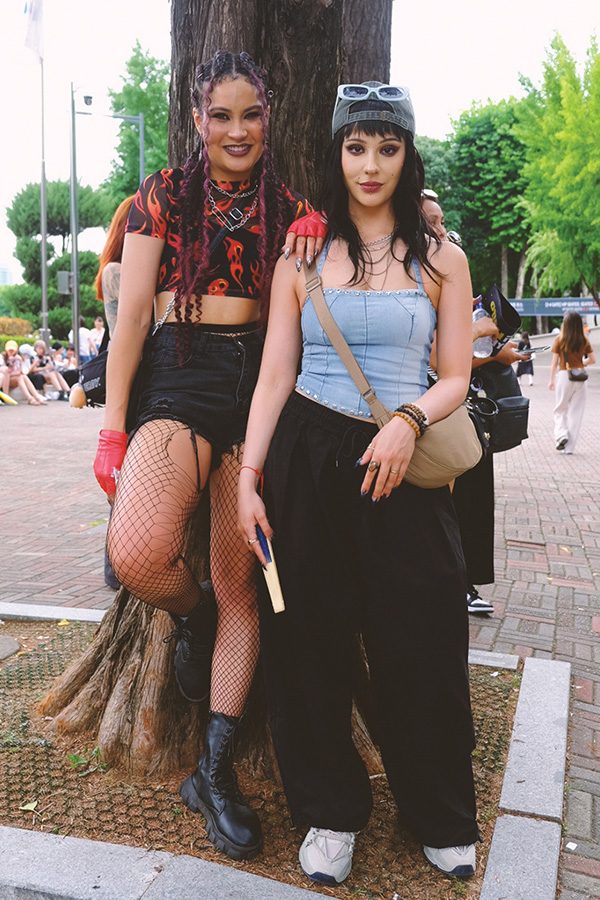
Entertainers Woosky (L) and Yubo (R) outside Suga's D-Day concert in Seoul
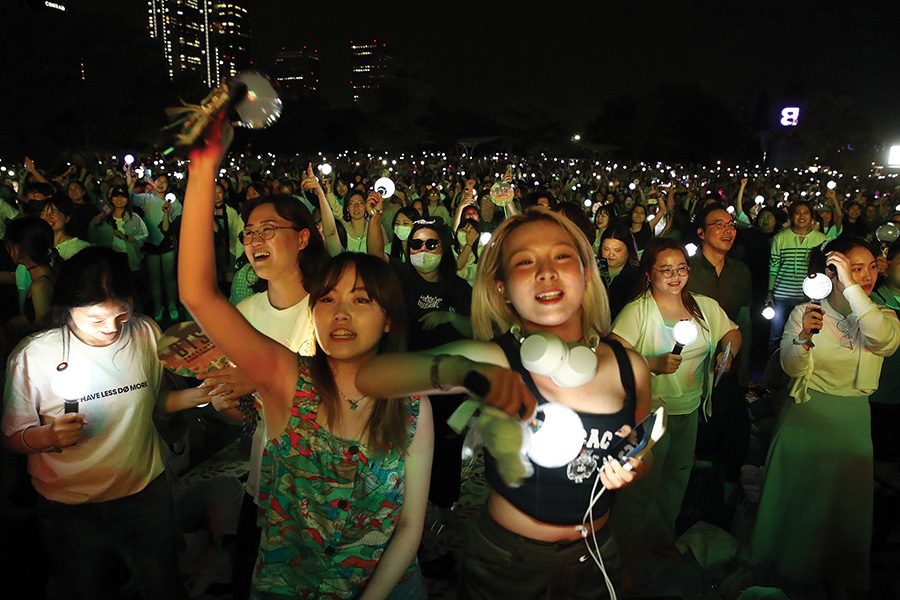
Credit: Getty Images
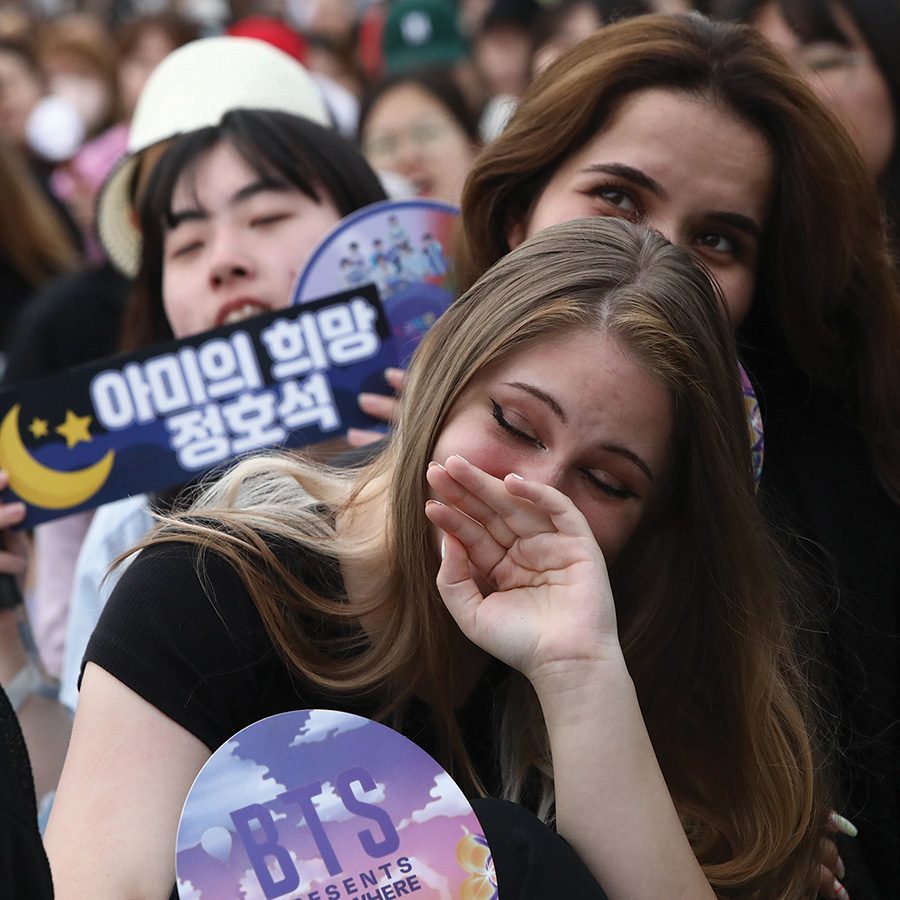
Credit: Getty Images
A window unto the world
While US celebrities like the Biebers or the Kardashians share snapshots of virtually uninterrupted luxury, the lifestyles of South Korean stars appear more accessible. In interviews and during variety show appearances, they emphasise their connection with everyday Korean culture by sharing how they eat at mom-and-pop cafés or explore tourist sites like Namsan Tower .
It’s turned K-pop groups into pseudo-ambassadors for South Korea, serving as a gateway to the culture. This hasn’t gone unnoticed by the government: BTS members were each awarded a Hwagwan Order of Cultural Merit in 2018 for spotlighting South Korea on a global stage.
It’s obvious that they love the country that they’re from,” says Christina, another Filipina fan. “They have a love for preserving their heritage.”
In turn, Seoul travel guides produced by fans highlight historical sites like Gyeongbokgung Palace alongside K-Pop locations like a remote bus stop once featured on a BTS album cover.
“Just because someone listens to Dua Lipa doesn’t mean they want to travel to the UK,” Yang says. “K-pop has such a strong national identity. Fans want to learn more about the Korean stuff that K-pop groups are talking about. They end up coming to Korea to appreciate everything.”
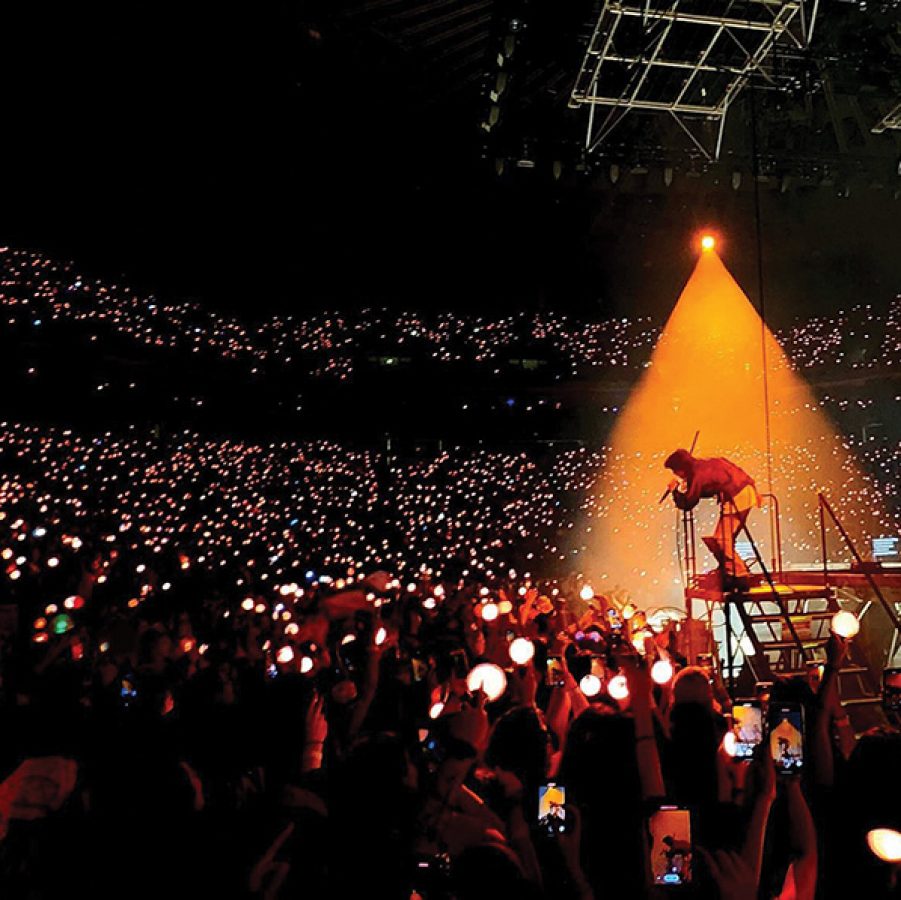
Credit: US BTS ARMY
Parasocial travel
As social media has given fans and artists new, more direct channels of communication, the phenomenon of “parasocial”, or one-sided, relationships between devoted fans and their favourite artists has reared its head. Korean pop culture takes things to the next level: BTS fans (who call themselves the Army) identify themselves by their “bias” – whichever member of the band they are drawn to most.
Mental health and Korean culture expert Jeanie Chang, the founder of K-drama-themed tours Meet You in Korea and the influencer behind the brand Noona’s Noonchi, explains this devotion is partly why many decide to make the journey to Korea.
“Fans want to immerse in the culture and eat the food, speak the language, make kimchi because they see their favourite idols or actors doing it. It makes them feel close to them,” she says. “People want that relationship [with their idol] and this makes them feel like they have a relationship to the culture.”
Life-changing moments
For some fans, travelling to Korea has proven life- changing. Entertainer Woosky moved to Seoul from her native Bermuda to follow her dream to become a performer, inspired by K-pop artists. She remembers the first time she encountered BTS: “They reminded me what my happiness looked like.
“They gave me the courage to come here and learn from the choreographers they learned from.”
Elba, who flew from San Francisco for Suga’s concert, had never been on a plane until last year. After it was announced that BTS member J-Hope was performing at the Lollapalooza festival, she booked her first flight to Chicago. She then flew to Busan for last October’s big BTS concert – quitting her job to do so – which sparked a travel-centric career change.
“I came back from Korea, and I was like, being a flight attendant would be pretty cool,” she says. “I applied and got the job. Suga announced his tour while I was in training, so I needed to pass my exams to be able to travel to see him.”
Since then, Elba’s developed a passion for travel. “It opened up my life,” she says. “I was scared to quit my desk job until I realised there were other options out there.”
Outside Jamsil Stadium, a Korean woman handing out free Suga badges bonds with an American fan, over having both attended the same K-pop concert in New York. Christina, the Filipina fan I met earlier, is already talking about coming back to Seoul with her mother. Meanwhile, Anna, another fan from Saint Petersburg, tells me how she went to Paris to see BTS, and then stayed to explore Europe afterwards. K-pop might be what gets fans onto planes, but the hunger to see and experience everything else quickly follows.
“I didn’t have people in my life that told me to follow my dreams, to love myself. And after hearing it from seven men all the way in Korea? I’ll follow them anywhere,” says Woosky. “And here I am. I’m living the life I’ve always dreamed of.”
Elba has scheduled a tattoo appointment to ink an homage to the band that changed her life. It’s a BTS “constellation”, she says, which seems fitting. Like ancient sailors following the stars, there’s an entire world ready for these fans to explore – with K-pop as their compass.
5 K-Pop destinations in Seoul
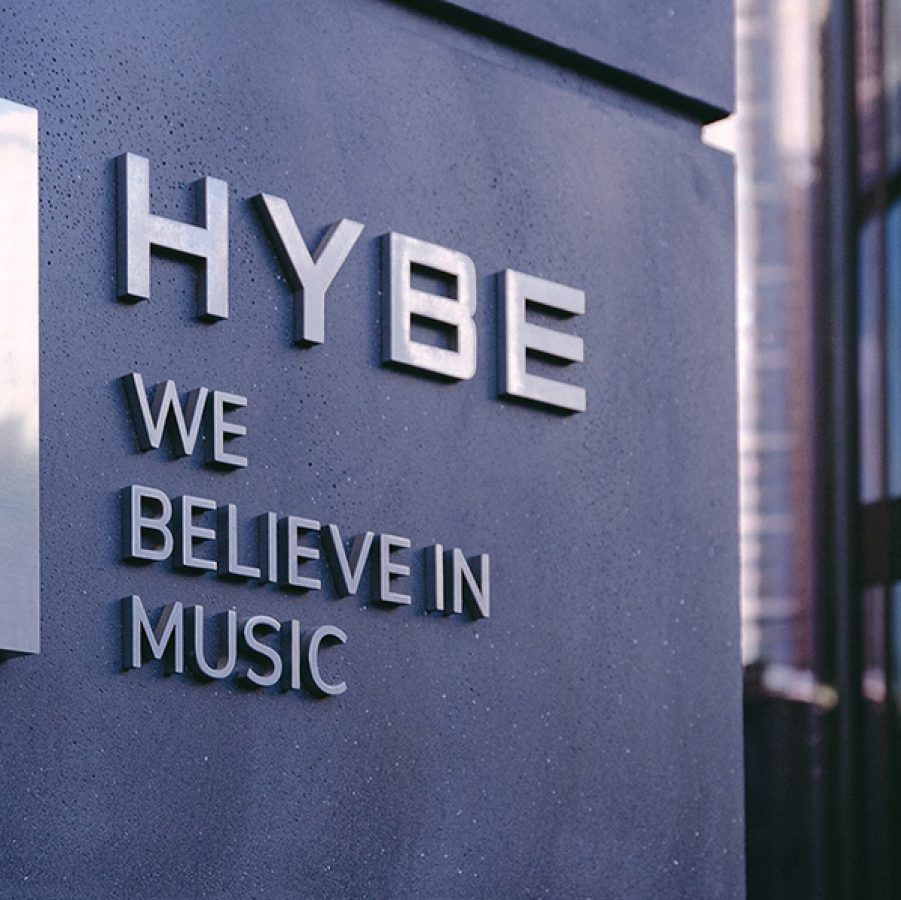
Credit: Elvis Chung
1. HYBE Insight
Futuristic space where K-pop-themed exhibitions are held.
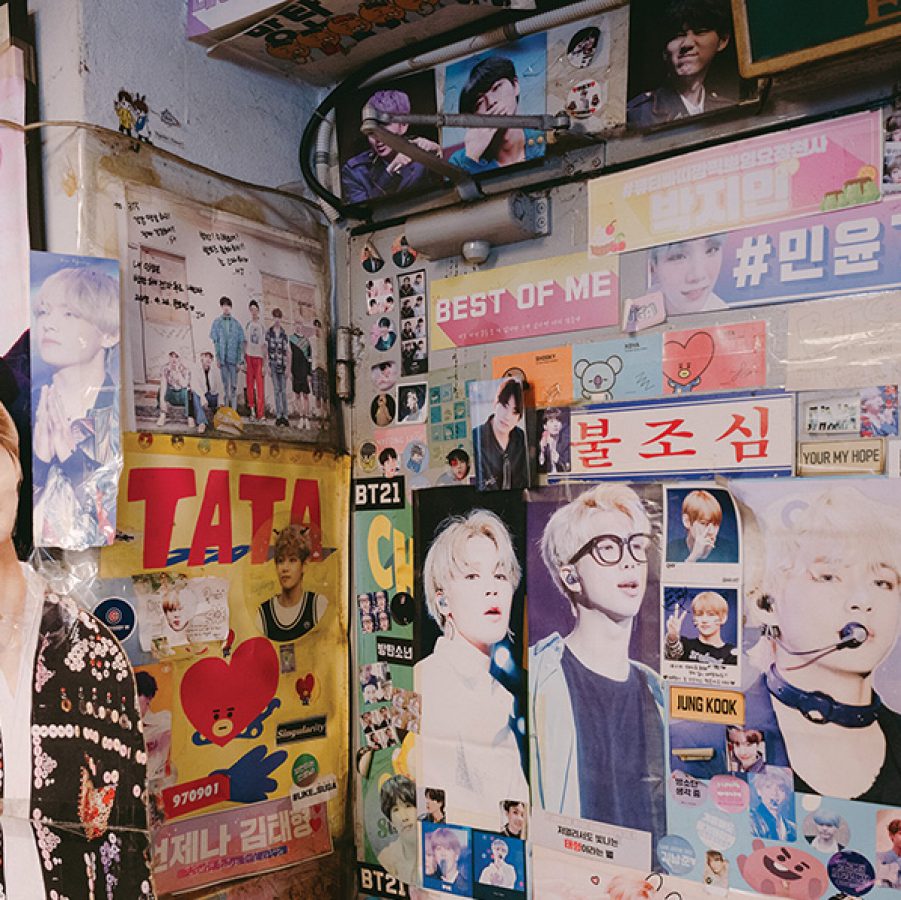
Credit: Elvis Chung
2. Yoojung Sikdang
The traditional Korean restaurant BTS frequented as rookies.
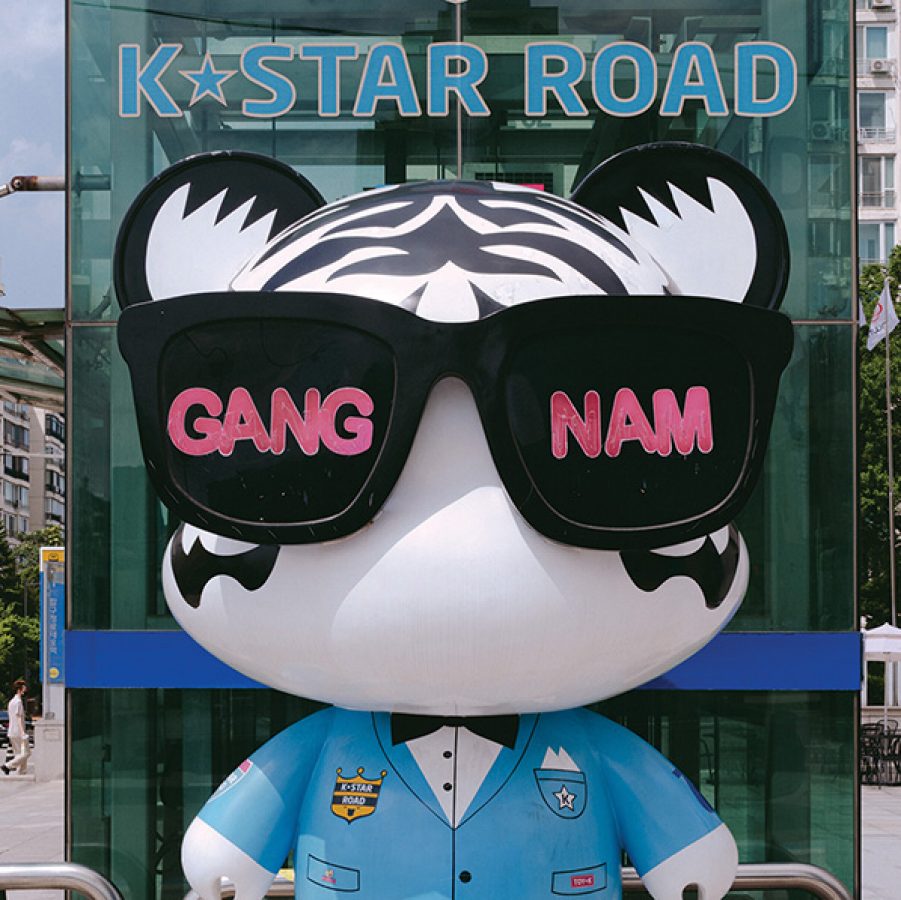
Credit: Elvis Chung
3. K-star Road
Lined with plastic sculptures of K-pop mascots.

Credit: Getty Images
4. Jenny House
Opulent beauty salon frequented by K-pop idols, including actress Son Ye-jin (pictured).
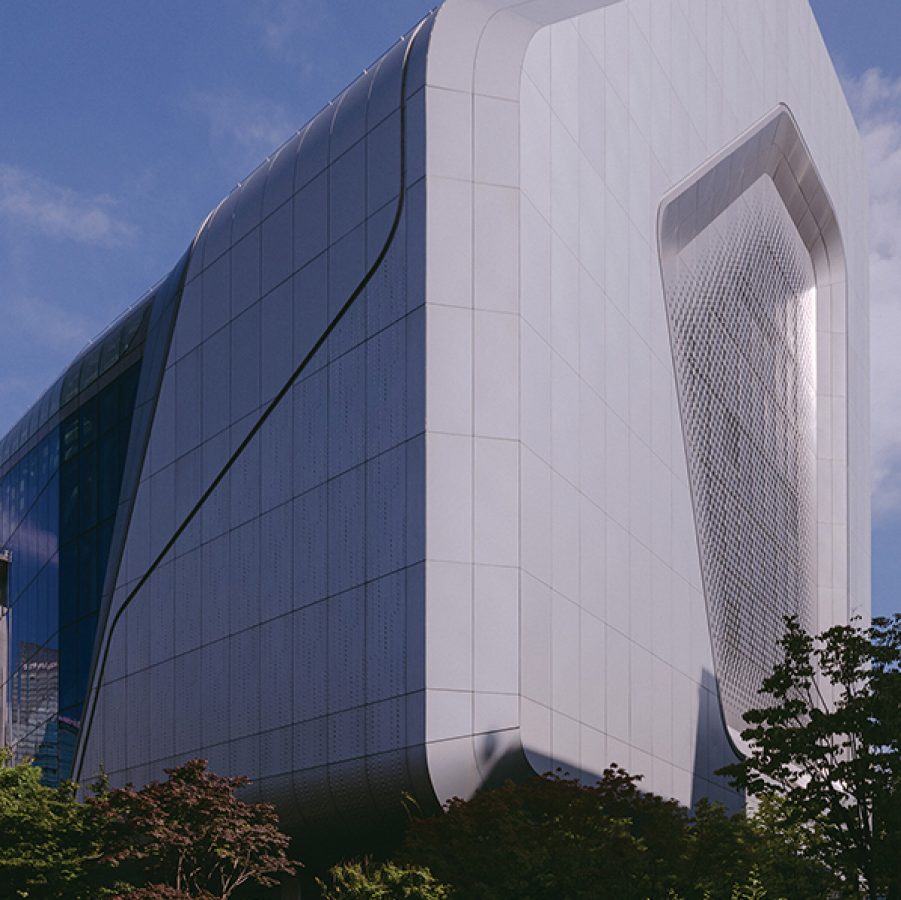
Credit: Elvis Chung
5. YG Entertainment
Blackpink and BigBang’s recording label and the unofficial home of K-pop in Korea: the building is designed to look like a speaker.
More inspiration
Seoul travel information
- China – the Chinese Mainland, Hong Kong SAR, Macao SAR and Taiwan Region
- Hong Kong SAR - English
- Chinese Mainland (China) - English
- Taiwan, China - English
- 香港特別行政區 - 繁體中文
- 中国內地 - 简体中文
- 中國台灣 - 繁體中文
- Africa
- South Africa - English
- Asia
- Bangladesh - English
- Korea - English
- Singapore - English
- Cambodia - English
- 한국 - 한국어
- Sri Lanka - English
- India - English
- Malaysia - English
- Thailand - English
- Indonesia - English
- Maldives - English
- ประเทศไทย - ภาษาไทย
- Indonesia - Bahasa Indonesia
- Myanmar - English
- Vietnam - English
- Japan - English
- Nepal - English
- Việt Nam - tiếng Việt
- 日本 - 日本語
- Philippines - English
- Australasia
- Australia - English
- New Zealand - English


